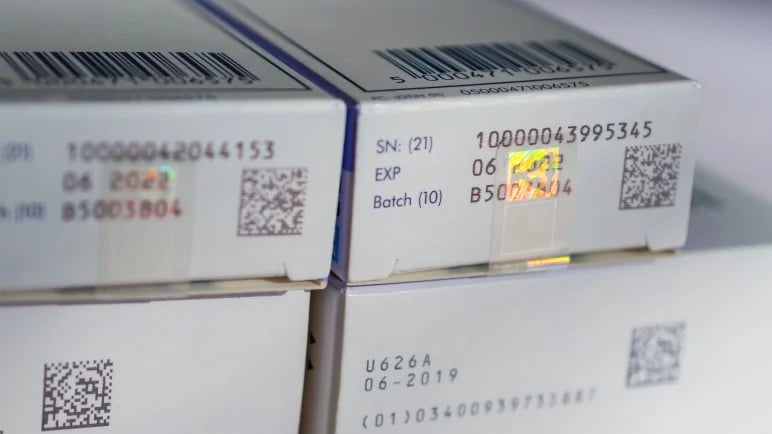We discuss the problems around medicines management that arise from a lack of efficiency in care homes and discuss the solutions provided by ATLAS eMAR

For care home staff and managers, operational efficiency is arguably the most important aspect of providing and evidencing outstanding medicines management because operational efficiency underpins all the other essential components, such as safety, costs, accountability and quality of life.
Without sufficient efficiency of operations, the other fundamental components of medicines management will necessarily be hindered.
But if care homes are able to maintain the very highest levels of operational efficiency, they will have the ability to provide truly person-centred care to residents and greatly improve quality of life through the time saved, the improved safety, the promotion of a learning culture with constant feedback and improvement and superior communications.
For more on operational efficiency in your care home, click here for ATLAS Customer Experience Manager Martin Wall's breakdown of how ATLAS eMAR's features will improve your care home's operational efficiency.
Below are just some of the ways in which improved operational efficiency will lead to transformative improvement in medicines management.
Time savings
The problem:
- In care homes, it has historically been the case, more often than not, that staff and managers have been unable to manage their already invaluable time due to the lack of efficiency in the systems they use.
- Traditionally, using paper-based MAR charts, it can take several hours to book in medications, it takes a long time to keep an audit trail of medications used on rounds because staff have to physically find the corresponding medication in the paper files (when they can find the time), and the managing of inventory takes so much longer than it needs to because using paper records means sifting through mountains of documents to try and keep track of everything that either needs to be ordered or accounted for.
- This reliance on out-dated systems leads to a bottleneck of service, where multiple members of staff are needed to perform simple, mundane tasks and nurses spend most of their time administering medications instead of making clinical decisions.
The solution:
- By harnessing the latest technology, like those available with ATLAS eMAR, time management can be transformed by automating the tasks that can be automated, like the booking in of medications with our Barcode Scanning feature. This alone cuts a huge amount of unnecessary work out of the day of staff, who can instantly find out what dose needs to be given to whom and at what time.
- The ease-of-use of ATLAS eMAR means that medication administration can be handled by care staff, which frees up the time of nurses who can instead focus on more clinical-led elements of care provision.
Communication
The problem:
- Efficiency in medicines management means having complete control of information, which can change very quickly in a care setting. Whether it’s a change of medications, or the change of dose needed, that information should be available in real-time so that care staff can make agile decisions to ensure the best quality of care for residents. However, with paper-based MAR charts, the information available is almost always out of date because it can’t be amended in real-time.
- A lack of real-time communications also means that any changes in prescriptions that are made by doctors are not reflected in the information available, which can lead to pharmacists issuing prescriptions that have either been altered or stopped altogether.
- A lack of real-time access to information also means that any changes made from a care home’s point of view will not be fed back to pharmacists as quickly as it needs to be, which can lead to wasted medications through the unnecessary or incorrect issuing of medications.
- When using paper-based MAR charts, even seemingly innocuous issues like a person’s handwriting can have a huge cascading effect; it may not seem like much, but if a pharmacist is unable to read, or misreads, the handwriting of a member of staff, this can lead to wasted time because the pharmacist will need to get in touch to confirm what the records say.
The solution:
- With ATLAS eMAR, and ATLAS Pharmacy, there is complete two-way integration between care homes and pharmacies, meaning that any changes to medication, the ordering of medications or keeping on top of inventory in real-time are reflected instantaneously in the data shared on ATLAS eMAR.
- Using ATLAS eMAR means that every round of medications, and every medication transaction, can be logged and recorded so that a full audit trail is available on the Centralised Dashboard. Not only does this mean that there is complete transparency between members of staff and the care homes with pharmacies, but it also makes it so much easier to keep on top of information that can be used for evidencing quality standards to regulators.
Safety and accuracy
The problem:
- Traditionally, with the use of paper-based MAR charts, it has been difficult to fully quantify the changes in requirements for medications. The lack of real-time information on changes to dose or time or the medications themselves meant that residents were either getting medications that were no longer necessary, or they were getting them at the wrong time.
- In other cases, due to the inefficient nature of a paper system, it meant that the wrong person might get the medication.
- For example, care home staff might have found themselves in the situation where they had to administer medications on strict four-hour intervals, but because of the amount of time it takes to book all of the medications in and the time it takes to record the administrations of medication as they go, someone who, on paper, had their dose at 8am might in reality have had it at 10am, and again will have it at 12pm. This can lead to serious safety issues, which, depending on the drug, can also have other over-medicating consequences like an increase in falls.
The solution:
- With ATLAS eMAR, the system of medication administration is completely safeguarded to ensure that the right resident gets the right dose at the right time because the Barcode Scanning feature of the hand-held device will issue a series of safety checks on things like missing doses or incorrect doses and flag users of potential issues.
- By providing real-time information and safety checks in this way, ATLAS eMAR will ensure that care staff will always know what medications they need to administer to whom.
- ATLAS eMAR is the only eMAR system that uses barcode scanning to ensure total accuracy of medications because unlike other eMAR systems that will just tell you, for example, what medication is in a packet, ATLAS will give you exact details on the amount.
Insights and improvement
The problem:
- Reaching the highest possible levels of efficiency in care homes to ensure outstanding medicines management also means fostering a learning culture where issues are identified, and strategies are put in place to ensure best practices are always being followed. But with the huge gaps in information that exist with paper MAR charts, it can be difficult to even keep track of any issues before care home managers can even know where to begin trying to fix them.
- Because care home staff work such long and difficult hours, even with the very best of intentions, it can be all-too-easy to forget to record medication errors, but sometimes it might be the case that medication errors on things like timing or dosage don’t even get picked up at all because staff don’t have the time to focus on accuracy to the degree they should and want to.
- Data on aspects of medication timing, missed doses or the use of non-prescribed medications is almost impossible to fully keep track of with paper, which means managers don’t have the insights and the trends to analyse performance and identify gaps where staff training might be needed, or policies need to be amended.
- This same issue is magnified with compliance officers or regional managers who, at the best of times, simply aren’t able to visit every single home they manage in a given day. Whether it’s not being able to reach someone on the phone because they’re in the middle of a medication round, or whether it’s having to fact-find for half a day before a regional manager even knows what the problems are, there is a baked-in hinderance when it comes to insights and improvements by using a paper-based system and even a less-integrated eMAR system.
The solution:
- Thanks to ATLAS’ unrivalled ability to gather and present data in an easily analysable way, care home managers have instant access to records that show things like missed doses or incorrect doses. They are able to look at insights into performance to identify areas of improvement in ways that would not have been possible with paper.
- For regional managers or compliance officers who might be responsible for dozens of care homes all across the country, the Group Reporting feature gives them a ranking of performance for their care homes so they can see at a glance where and how they need to focus their energies, so before they have even left their desk, they have all the information they need to address underperforming care homes and, like care managers, promote a learning culture of constant feedback and improvement to ensure that medicines management is always as streamlined, as efficient and as safe as possible.
Want to know more about ATLAS eMAR?
ATLAS’s market-leading eMAR system will increase safety and improve care home efficiency, to find out how, click the button below to book a demo.
.png)

